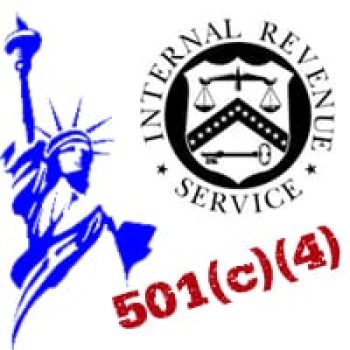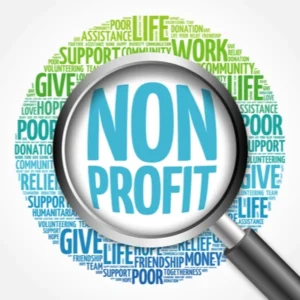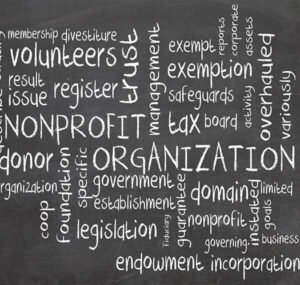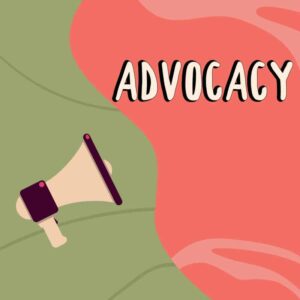501(c)(3) public charities are in a unique position to successfully advocate for the interests of those in need in our society. Advocacy may be even more impactful during an election year when public policy debates are at the forefront of the national consciousness. However, public charities should be aware of the limits placed on lobbying and political campaign activity by the Internal Revenue Code (“Code”). In certain situations, an organization pursuing ambitious policy objectives may find that establishing an affiliated 501(c)(4) social welfare organization opens up additional advocacy tools that can lead to an enhanced and more effective strategy.
I. Federal Tax Code Limitations on Public Charity Lobbying and Political Campaign Activities
Advocacy
A public charity can engage in an unlimited amount of advocacy in furtherance of its exempt purposes as long as that advocacy does not constitute lobbying or political campaign activity. This type of unrestricted advocacy may take many forms, including public education, nonpartisan research, and nonpartisan voter education, and can lay the groundwork for future lobbying activity.
Lobbying
What is Lobbying?
The Code recognizes two types of lobbying – direct lobbying and grassroots lobbying. In order for advocacy to be considered direct or grassroots lobbying, the communication must reflect the organization’s view on specific legislation. “Legislation,” in this context, includes action by Congress, a state legislature, local council or similar governing body, and the general public in a referendum, initiative, constitutional amendment, or similar procedure. It generally does not include action by an executive branch of government or independent regulatory agencies.
Direct lobbying refers to attempts to influence specific legislation through communication with a member or employee of a legislative body or a government official who participates in the formulation of legislation. A “member of a legislative body” generally includes members of Congress, state legislators, county supervisors and commissioners, city council members, members of international bodies with legislative power, legislative staffers, and the general public when voting on a ballot measure. Communication with other government employees, such as executive or administrative officials and staff, will be considered lobbying if those officials participate in the formulation of legislation and the purpose of the communication is to influence legislation. However, in general, communication with judges, executive branch officials, school board members, members of other similar local special purpose bodies, and members of the public when not voting on ballot measures do not qualify as communication with a member of a legislative body, and are therefore excluded from the definition of “direct lobbying.”
Grassroots lobbying refers to attempts to influence specific legislation by urging the public to take action with respect to the legislation. Common actions that constitute grassroots lobbying include: (1) directing the public to contact a legislator for the purpose of influencing legislation, (2) providing the contact information for a legislator, (3) providing a means to contact the legislator (e.g., a petition or postcard), or (4) publicly identifying a legislator as being opposed to or undecided about the organization’s view on the legislation.
Public Charity Lobbying Limits
A section 501(c)(3) public charity may engage in direct or grassroots lobbying as long as it does not devote a substantial part of its overall activities to lobbying activities (the “substantial part test”). There is no bright line rule stating what constitutes a “substantial” amount of lobbying activity. Whether an organization has devoted a substantial part of its activities to lobbying depends on all facts and circumstances, including the time of both compensated and volunteer workers devoted to lobbying activity and lobbying expenditures. If a public charity engages in a substantial amount of lobbying activity in any one year, the Internal Revenue Service (IRS) can revoke its tax-exempt status causing all of the organization’s income to be subject to tax. In addition, the IRS may impose a tax equal to 5% of lobbying expenditures on the organization and, separately, on any manager who agreed to make the expenditures knowing the organization would likely lose its tax-exempt status.
There is little guidance about what constitutes “substantial” lobbying activity and the consequences resulting from a violation of the substantial part test are severe. As a result, many organizations desire a more definite set of rules. Fortunately, Congress responded in 1976 when it enacted Code Sections 501(h) and 4911 setting forth the “expenditure test” as an alternative to the substantial part test. Charities seeking clearer limitations for their lobbying activities may elect to be subject to the “expenditure test” instead of the substantial part test by filing Form 5768 with the IRS (also known as making “a 501(h) election”).
While the substantial part test takes into consideration all facts and circumstances, including time spent by volunteers on lobbying activity, the expenditure test is concerned only with an organization’s lobbying expenditures. Under the expenditure test, lobbying will not jeopardize a charity’s tax-exempt status unless the organization’s lobbying expenditures exceed 150% of the lobbying expenditure allowance set by the Code taking into account the current year and the previous three years. For the first three years of its first election an organization need only take into consideration the years in which the election has been in effect as long as its lobbying expenditures do not exceed 150% of the lobbying expenditure allowance for those years . A public charity that has made a 501(h) election can spend up to twenty-five percent (25%) of its lobbying expenditure allowance on grassroots lobbying or up to the entire amount on direct lobbying. Lobbying expenditures in excess of this allowance will be subject to a 25% tax. Also, for electing charities, the Code exempts certain activities from the definition of lobbying including nonpartisan analysis or research, discussions of broad social, economic, and similar problems, requests for technical advice, and certain “self-defense” communications made by the organization to a legislative body or its representatives.
Political Campaign Activity
In addition to placing limits on lobbying activity, the Code prohibits a public charity from engaging in political campaign activity. An organization engages in political campaign activity when it participates or intervenes, directly or indirectly, in any political campaign on behalf of or in opposition to any candidate for public office. Whether an organization is participating or intervening in a political campaign depends on all of the facts and circumstances of each case. The IRS often looks for whether the communication, in content, structure, or distribution, evidences a bias or preference with respect to the views of any candidate or group of candidates. A “candidate for public office” is anyone who offers himself or herself, or is proposed by others, as a contestant for an elective office at the federal, state or local level. Participation in a political campaign might include actions such as endorsing or supporting financially a candidate for public office, a political party or a political action group or making statements in favor of or in opposition to a candidate. Certain voter education activities, such as releasing voter guides or legislative scorecards can, if structured appropriately, be conducted in a non-partisan manner and not constitute political campaign activity. A public charity that engages in any political campaign activity will lose its tax-exempt status.
II. Creating an Affiliated 501(c)(4) Organization
The limitations placed on public charity lobbying and political campaign activity may not allow a charity to engage in the level of advocacy necessary to achieve a desired policy outcome. One option in this instance is to establish a 501(c)(4) social welfare organization. Contributions to a 501(c)(4) are not deductible as charitable contributions, but 501(c)(4)s may engage in an unlimited amount of lobbying as long as the issues relate to the exempt purpose of the organization. In addition, 501(c)(4) organizations may engage in limited political campaign activities, subject to campaign finance laws, as long as these activities are not its primary activity. Charities should consider the operational and strategic implications of this decision, including:
- if there is a sufficient donor base to support a new 501(c)(4) organization;
- if additional advocacy tools will complement the 501(c)(3)’s advocacy efforts;
- whether the organization’s policy issue has been politicized in a way that makes it difficult to discuss in a non-partisan manner; and
- the effect of establishing an affiliated 501(c)(4) on the organization’s reputation.
Below are a few more considerations for public charities that plan to establish an affiliated 501(c)(4) organization.
Legal Separation
The 501(c)(4) must be a separate legal entity from the 501(c)(3). Usually, 501(c)(4) organizations are established as corporations under state law and, as such, are required to observe corporate formalities. The two organizations should maintain their own books and records, bank accounts, mailing addresses, and file their own tax returns and applications for tax-exempt status.
The board of directors of the 501(c)(4) organization must operate independently from the 501(c)(3), including holding distinct meetings. The 501(c)(3) and 501(c)(4) may have board members in common. If the boards completely overlap, careful attention must be paid to keep meetings and decisions separate so that it is clear which board is acting at a given moment. Even with careful recordkeeping, there are reasons to keep board overlap to a minority of the board. Minority overlap will allow the disinterested majority of the board of each entity to approve financial transactions (e.g., grants or loans) between the entities and protect the interests and separate existence of both entities. Further, if the 501(c)(4) will engage in any political campaign activity, it is often advisable to increase the separation between the two entities to reduce the risk that any political activity of the (c)(4) may be attributed to the 501(c)(3).
Financial Separation
A 501(c)(3) must not subsidize the day-to-day operations of an affiliated 501(c)(4). If the two entities will share office space, equipment, and/or staff, the (c)(4) must pay its share of the cost. Typically, this arrangement is memorialized in a written cost-sharing agreement.
Shared employees should keep written time records in order to support allocation of salary between the two organizations. This is critical if the (c)(4) will engage in political campaign activity since the (c)(3) may not directly or indirectly support the political activity of the (c)(4).
As in the case with employee time, the (c)(4) should pay its fair share for any office space or equipment used so that the (c)(3) is not subsidizing the (c)(4)’s activities. The (c)(4) might sublease office space from the (c)(3) at fair market value, pay its share of the rent to the landlord directly, or even pay the full amount of rent and allow the (c)(3) to occupy the space free of charge.
Operational Separation
The charity may not control or give the appearance that it controls the everyday activities of the (c)(4). The (c)(3)’s and (c)(4)’s purposes may align, but each organization should maintain and document its own levels of authority and responsibility in day-to-day operations. Set up good legal compliance systems from the beginning and train staff so they know these systems and can make sure they function effectively.
There are a number of other considerations when establishing an affiliated 501(c)(4) organization, including issues related to applying for tax-exempt status, startup costs, joint fundraising, grants or loans between the organizations, and whether the two entities can share other resources, such as donor lists or a website. To navigate these issues, it is helpful to seek qualified counsel.
- Perlman & Perlmanhttps://perlmanandperlman.com/author/nancyisrael/
- Perlman & Perlmanhttps://perlmanandperlman.com/author/nancyisrael/
- Perlman & Perlmanhttps://perlmanandperlman.com/author/nancyisrael/
- Perlman & Perlmanhttps://perlmanandperlman.com/author/nancyisrael/
















